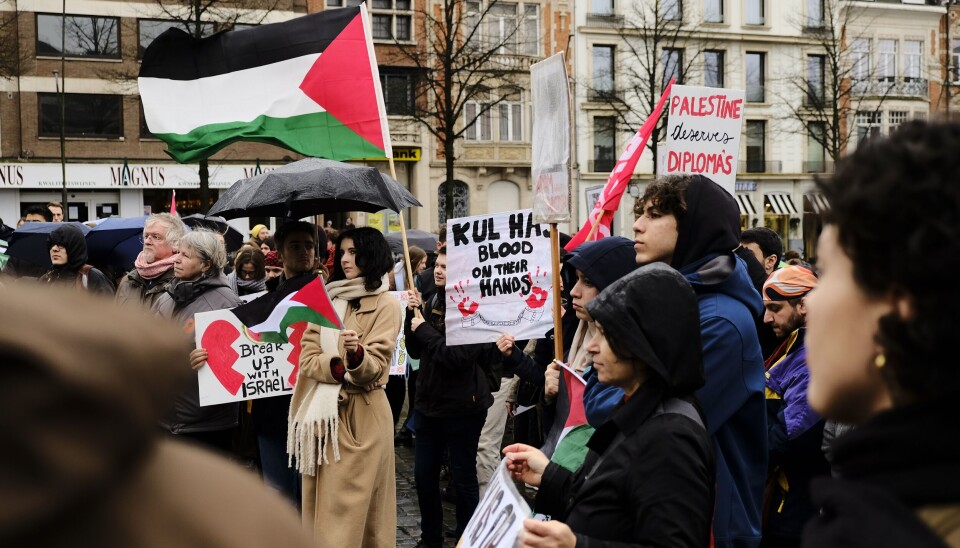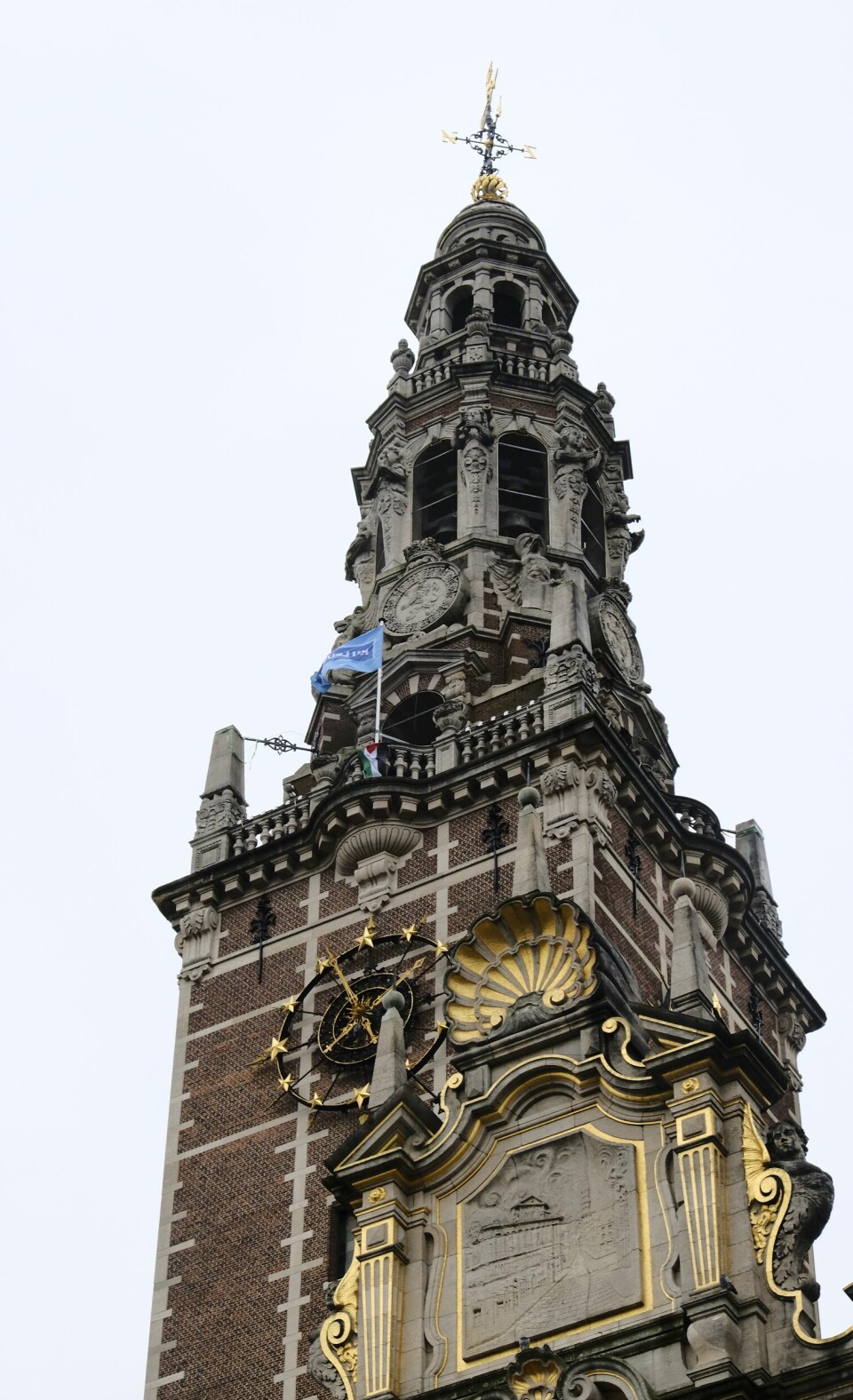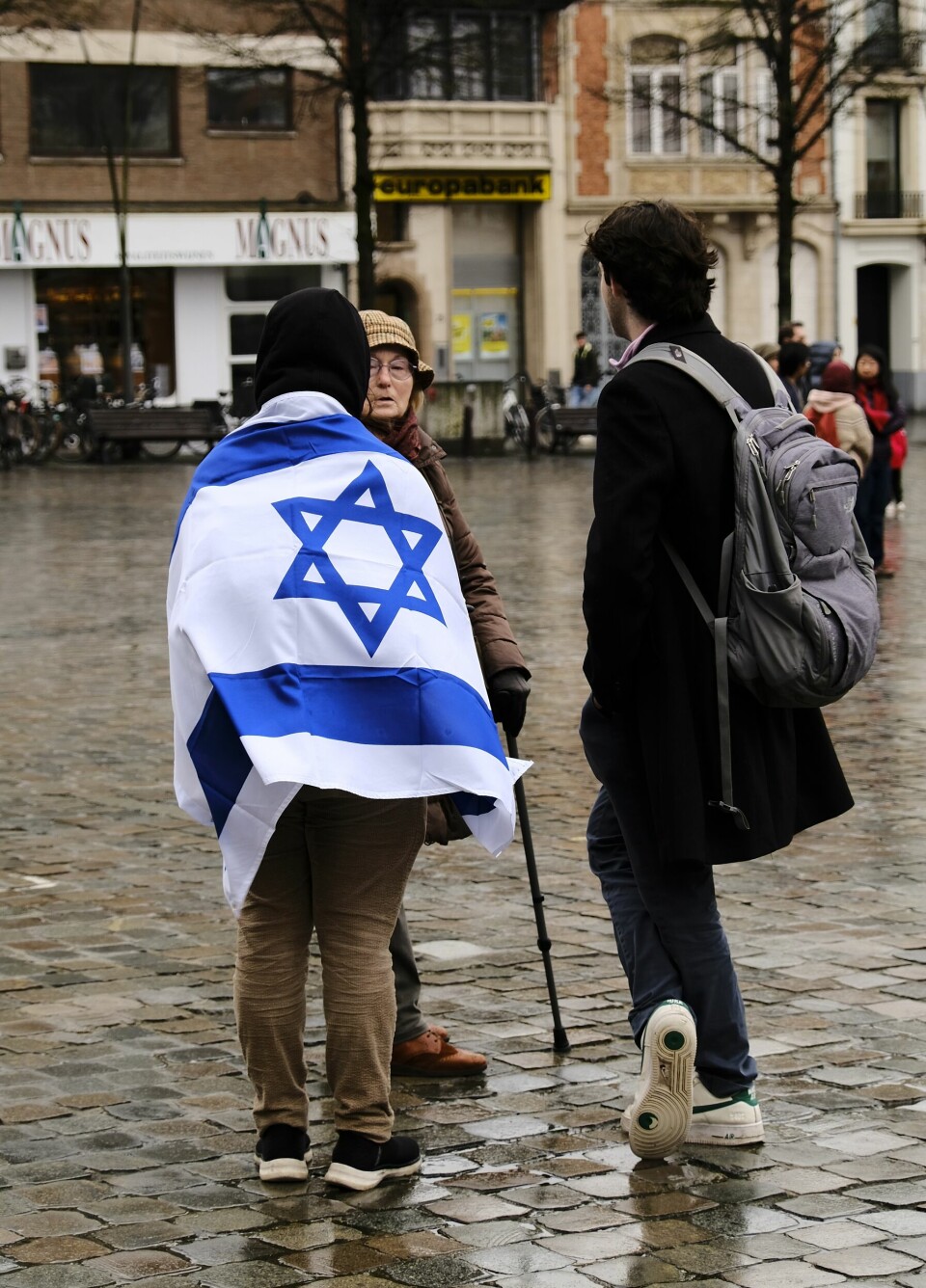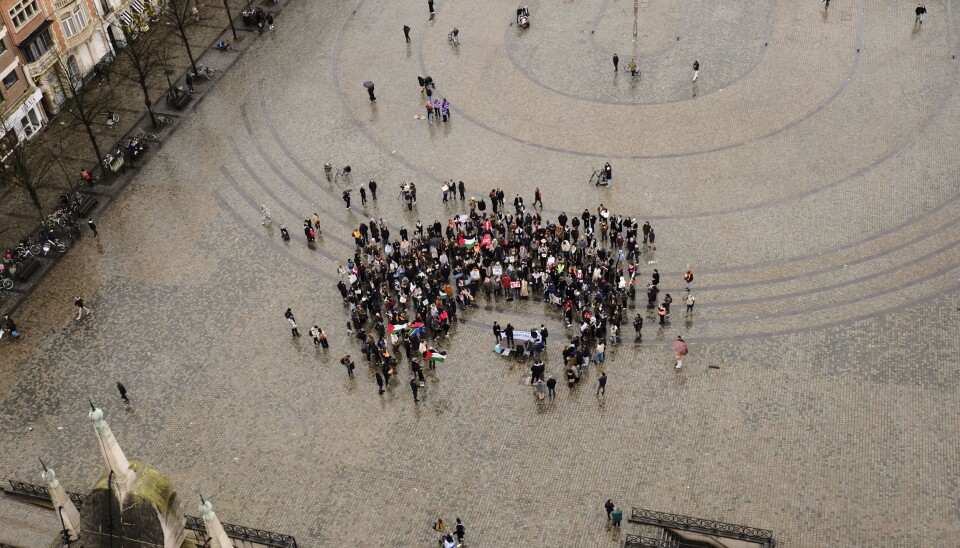REPORT PROTEST
'Shame on KU Leuven': action group protests against ties with Israeli partners

Last Wednesday, about 200 students and employees of KU Leuven protested on Ladeuzeplein against the University's ties with Israeli partners. Protests also took place in other university cities under the slogan 'Break up with Israel'. A student wearing an Israeli flag gained attention.

Besides umbrellas, Palestinian flags, keffiyehs (scarves) and signs were present on Ladeuzeplein. Some of the chants that stood out include: 'Palestine deserves diploma’s too', 'No more lies, cut the ties' and 'Never again is now'.
The protest lasted for one hour, during which a number of protestors gave speeches and shouted slogans such as 'Shame on KU Leuven, break up with Israel'. A Jewish student with an Israeli flag was also present, attracting the attention of the crowd.
'Toxic' partners
Samier Khaled, initiator of the national campaign, is a medical student at KU Leuven. 'It is easy to lose sight of current events during the exam period, but for me and many other Palestinian students, that period brought nothing but anxiety and sadness because of the genocide that is taking place.'
'I think the process of peace starts with conversations with ordinary people and that's why I'm here'
Samier therefore felt that it was necessary to continue drawing attention to KU Leuven's relationship with Israeli universities. According to him, the university should cut all ties based on the connection between Israeli partners and the Israeli arms industry. Their bond with KU Leuven is a 'toxic' one, the action group has stated.
The protest was mainly supported by various pro-Palestinian action groups such as KU Leuven's Students 4 Palestine, Solidarity with Palestine Leuven LAP and Intal Leuven. The Leuven branch of Marxist student association Comac was also present, but they were not the initiators.
Jewish student present
Strikingly, a Jewish Computer Science student wearing an Israeli flag was standing in front of the crowd. The student, named Matthew Reichmann, wanted to encourage an open discussion. Because of the flag, people approach and enter into discussion with me more easily', though I understand that it is considered a provocation by some', the Reichmann told Veto.

'I think that the protests come across as anti-Israel, as is now the case with the call for severing academic ties, instead of moving towards each other in the name of peace', he continued. 'I think the process of peace starts with conversations with ordinary people and that's why I'm here.'
'Too few people actually show that they disagree, and that's why I want to be here, because I have to show my disagreement'
Halfway through the protest, a Palestinian flag suddenly appeared above the carillon tower, prompting applause from the audience. Even though some claimed on social media that the flag had been hung by the carillonneur himself, the culprit was an anonymous woman who had simply purchased an entrance ticket to the tower, as a couple of University Library employees explained. The protest concluded with the distribution of a heart-shaped loaf of bread, torn in little pieces, among those present.
Staff present
A number of academic staff also attended the protest. Anthropology professor Nadia Fadil gave a speech in which she said that the conflict is a European issue for which Europe is to blame. After all, European resources, weapons and support are supplied to Israel, while it is mainly southern countries and former colonies that now support Palestine and, like South Africa, explicitly speak out against Israel. She concluded with the words 'ceasefire now'.
Many of the students at the protest criticized the University's attitude. 'KU Leuven wants to stay neutral, so to speak, but in this case I don't think you can be neutral. The university is acting hypocritically, because after the invasion of Ukraine by Russia, it severed ties (with Russia, red.)', says Marthe, a Law student. Many other attendees shared the same point of view.

Corporate Law professor Marieke Wyckaert was also present at the protest: 'As a lawyer, I find words such as genocide and apartheid highly charged , but a sense of proportionality is completely missing. When I talk with my colleagues, almost everyone agrees that Israel's response is disproportionate and that what's currently happening is really unacceptable. Still, too few people actually show their disagreement, and that's why I want to be here, because I have to show it.'
However, some had very personal reasons for attending the protest. 'My grandparents were Palestinian refugees and I grew up in Jordan and saw what happened with my own eyes', said Fares, an international Engineering student. 'We can only protest, educate people and keep spreading awareness and that's why I'm here.'
Demands for an academic boycott have been raging for some time now. However, not everyone agrees with this sentiment. Flemish universities have adopted a rather cautionary attitude: rather than measuring all Israeli academics and students by the same yardstick, university collaborations are now examined on a case-by-case basis in most cases. Nevertheless, almost all universities have already taken a position against the violence in Gaza.









